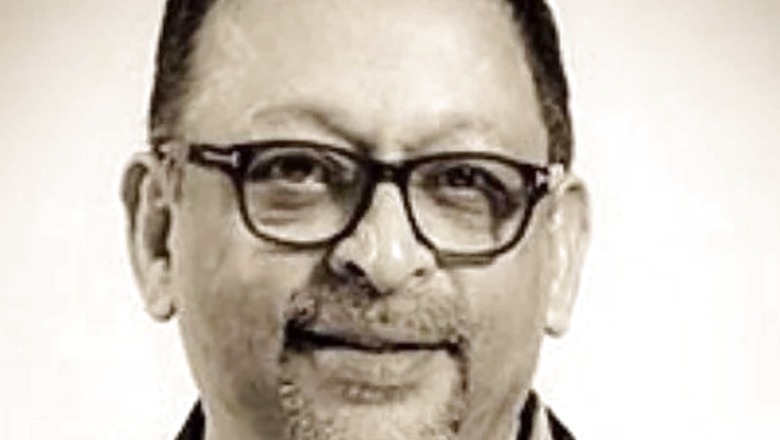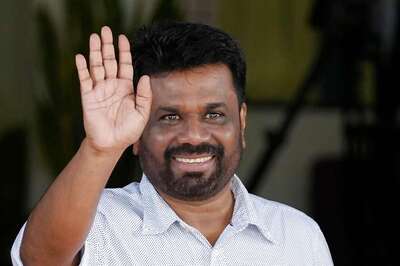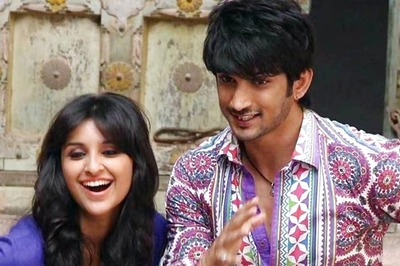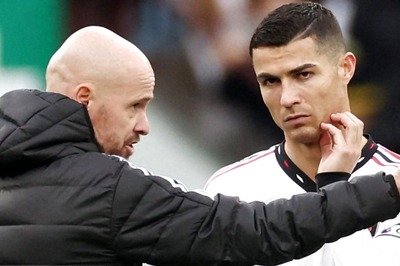
views
It was 1999 and Brand Equity, ET’s weekly magazine on marketing, had broken one of the biggest stories that rocked the world of advertising. Headlined ‘The Big Squeeze’, it blew the lid off the worst kept secret in the ad world–how agency commissions, pegged at a minimum 15%, had hit an all-time low of 3-4%. The biggest ad agencies were in a flap and those companies which were paying commissions of over 4% came down hard, very hard, on their ad agencies.
The big daddies of the ad world in the late 1990s were furious with Brand Equity, and I, as the editor of the magazine, was persona non grata. The agency business, which was already floundering, had been dealt a huge blow by this exposé. The agency CEOs picked up their phones to lodge a loud protest with their friend Pradeep Guha, President and Response head of The Times Group, the man whose word was law at the Old Lady of Boribunder.
The office of Mr Guha–I could never call him Pradeep or Boss–called my extension to tell me that I was being summoned by the Big Boss. I wouldn’t exactly say my heart was knocking at my ribs but this was the first time in four years at The Economic Times that I had ever got a call from his office. So it was good enough to unsettle a 29-year-old editor of one small arm of the giant newspaper.
Till that moment, I had only heard stories, admiringly and enviously, of Mr Guha’s exploits. I quickly gathered myself and made my way to the corner room on the second floor which was the fabled office of the President of Response. Unofficially some of us bachelors often sneaked into Response on some pretext or the other to catch a glimpse of the beauty queens–not only the real ones who dropped in on Mr Guha but also those who didn’t make it to the top of the Femina Miss India list but were instead recruited in Response!
As I knocked and entered the room, I saw a short man behind a large table, quite unlike the image I had of Mr Guha. He turned around and rose from his swivel chair and adjusted his big buckle by holding on to the broad leather belt on either side of it. I later realised it was his trademark style and he would do it every time he stepped out of this room and looked across the vastness of his plush Response office, much like Lion King. (It’s another matter that Salman Khan later borrowed that style and made it into a signature dance step in Chulbul Pandey). Sorry, I digress.
The man who needed no introduction introduced himself, the deep baritone giving me a sense of his towering personality and larger-than-life presence. PG, as he’s fondly called by friends, asked me if I was the editor who had commissioned the story. I kind of nodded. PG laughed and broke the ice, even said he enjoyed the story. In the same breath, he rattled off the names of industry bigwigs who had called to bitterly complain. The men and women who gave big bucks to the Times Group.
I sheepishly told him I had even commissioned a follow-up story, which was to appear the following day and that the edition had been put to bed (which means the story cannot be withdrawn). PG raised a furrowed brow but before he could say something, I blurted: “Mr Guha, I’m happy to take the version of the industry captains as the cover story in the next edition of Brand Equity.”
Mr Guha was categoric. This is it. No more of this story. “Industry captains want their version out, it’s only fair…” my voice trailed off. Mr Guha knew what another story could do. The longer it remained in public consciousness the more damage it could do. “Don’t worry, I assure you the advertising CEOs don’t want their version out,” he concluded on their behalf. In the next one hour, every agency CEO called in to say they were not interested in participating in the story.
That was PG for you. His word was law not only at the Times but even in the advertising and marketing world. And in the events and lifestyle business. Also, in Bollywood.
Contrary to popular belief, Pradeep Guha had the soul of a journalist–after all he was a left-leaning student leader in his college days–under the garb of a marketing maven. Along with the iconoclastic promoters of the Times group Samir and Vineet Jain, Guha transformed the reader experience of all group publications while introducing FMCG strategies such as ‘sachets’ and ‘invitation pricing’ into the world of stodgy 1990s journalism.
Above everything else, Mr Guha was an event manager extraordinaire. I had the time of my life helping him put together Ad Asia 2003–a seven-day marketing extravaganza in Jaipur–which was flagged off by Amitabh Bachchan and had Shah Rukh Khan to ring down the curtains. Across the five best heritage hotels of Jaipur, Mr Guha transformed the mundane into the magical as bulge-bracket CEOs, management thinkers and Bollywood stars rubbed shoulders and raised a glass to marketing and brand excellence.
I have got calls from the biggest CEOs and promoters of India Inc literally begging me for a pass to the Filmfare Awards and the Bombay Times party, which were the brainchild of Mr Guha. I hadn’t the heart to tell them that I was not part of the invitation list! But when I finally got invited for the Bombay Times party many years later, I realised why it was such a big rage–I had to jostle my way past Shah Rukh Khan, some beauty queens, many Bollywood actresses and a few big promoters and CEOs. The Mumbai elite was clearly divided between the haves and the have-nots of the Bombay Times party passes!
PG was a tall leader. PG groomed and built leaders. PG gave confidence to ordinary people to do extraordinary things. And most important, PG touched the lives of people and those in turn gave their lives for him, both on the professional front and at a personal level.
On the personal front, some images will remain forever etched in my memory. Of him calling to invite me for every Diwali party knowing fully well that I would never be able to attend because of my annual visit to my mother. He still called every year without fail. And, more recently, it was Mr Guha who persuaded me to accept the AAI award for Editorial Leader of the Year, the only award I have in my cupboard. As I was stepping down the stage looking into the audience, there was one man who stood up and clapped for me. To imagine getting a standing ovation from Pradeep Guha.
Yes, he’s gone too soon. But then I’m reminded of these immortal lines, which, loosely translated, means: There’s no fun in suffering if you don’t die young; there’s no joy in the funeral procession if you’re not mourned in every nook and cranny.
Kya nazaa ki takleefon main mazaa;
Jab maut na aaye jawaani main…
Kya lutf janaza uthne ka;
Har gham main jab maatam na hua
Au revoir, Mr Guha, till we meet again…
(The writer wrote a column under this pseudonym in The Economic Times in the days Pradeep Guha was President-Response)
Read all the Latest News, Breaking News and Assembly Elections Live Updates here.




















Comments
0 comment